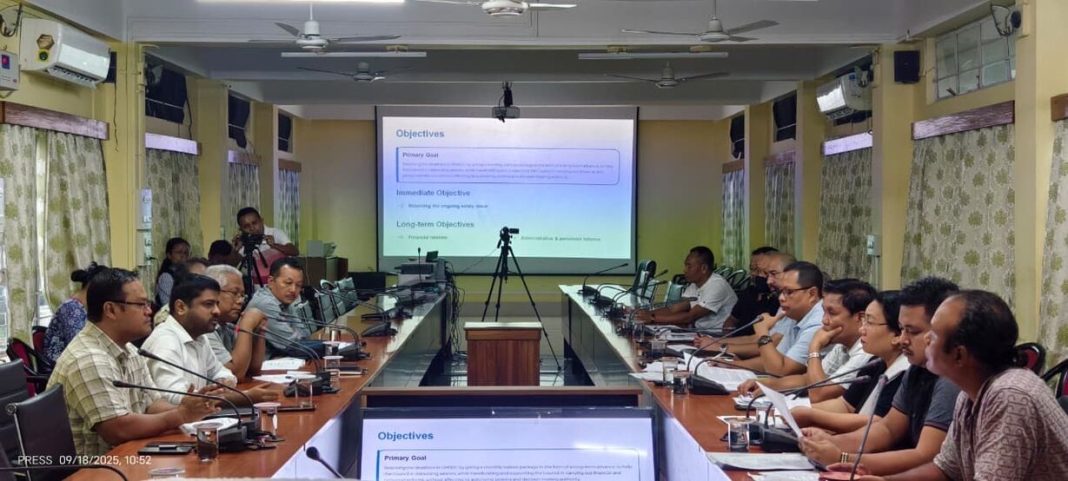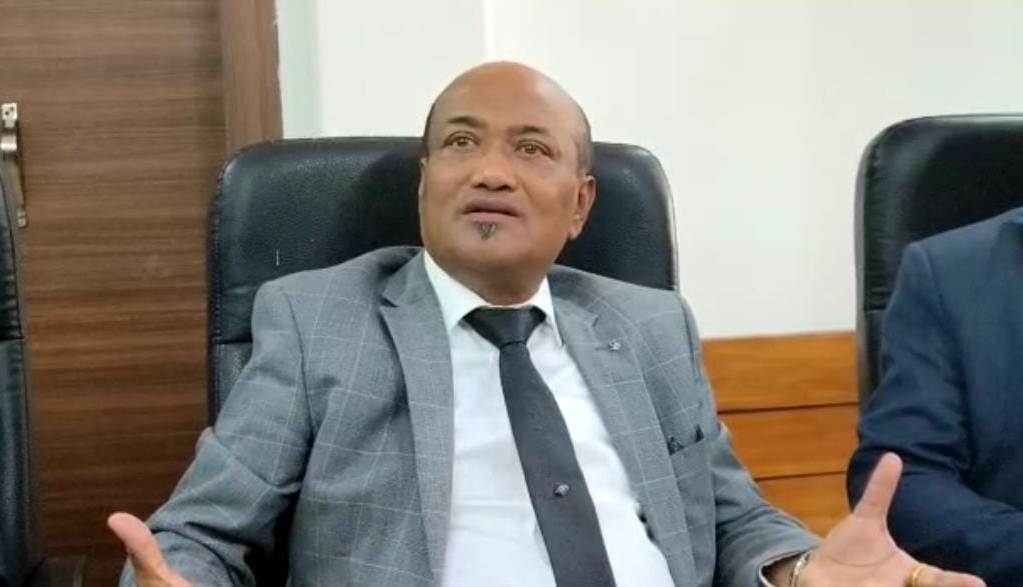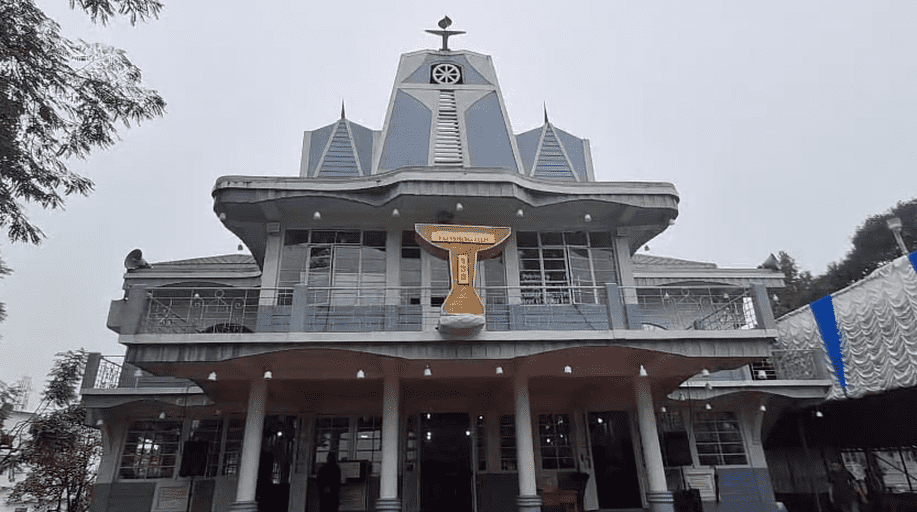Tura, Sept 19: Stakeholders have aired different views on the state government’s approach towards resolving the financial crisis of Garo Hills Autonomous District Council (GHADC) during marathon meetings with the Subcommittee on GHADC Reforms at Tura on Thursday.
The Subcommittee, chaired by Vibhor Agarwal, held a marathon round of consultations with the stakeholders at Tura Circuit House on Thursday.
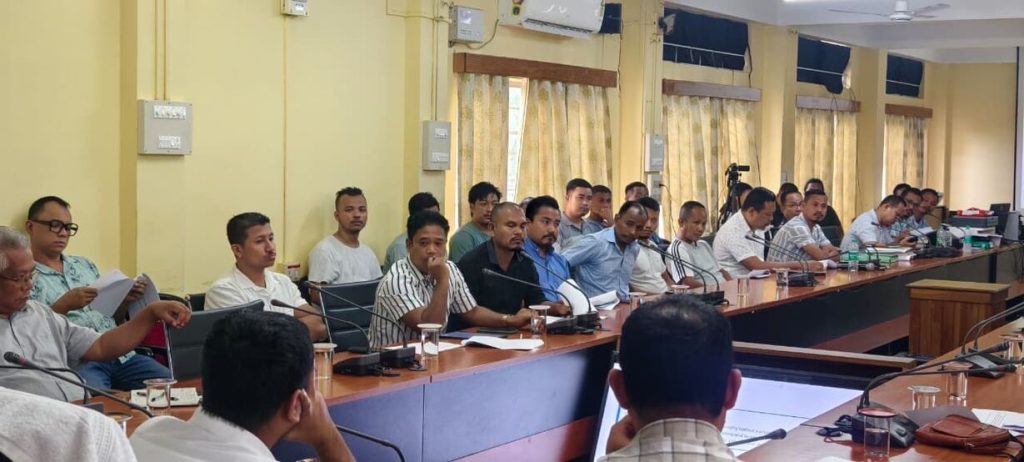
In two separate meetings, the Members of District Council (MDCs) – attended by both ruling and opposition MDCs – and the civil society groups and senior citizens, the discussions were dominated by the unresolved issue of 44 months of unpaid salary to GHADC employees and the state government’s proposed bailout package.
After the four-hour-long meetings, Agarwal told reporters that while there was consensus on urgency of resolving the salary crisis, opinions differed on the path forward.
He assured stakeholders that the state government had no intention of infringing upon the Sixth Schedule or undermining the GHADC’s autonomy.
“Any financial or administrative measures will respect the constitutional provisions governing the Council,” he said.
Civil society organizations, including GSU, FKJGP, AYWO, AHAM, ADE, AAYF, A•CHIK, Mother’s Union, and ANY, voiced reservations about modalities of the proposed bailout package.
While welcoming the idea in principle, they rejected the possibility of the state directly paying GHADC employees, warning that it would erode the Council’s autonomy.
“We welcome the bailout package, but strongly oppose the idea of the state giving salaries every month. That would be unconstitutional and against the autonomy of the Council,” said an FKJGP leader.
GSU president Tengsak G Momin questioned the sustainability of the plan, saying, “We are asking where the funds will come from. It’s important for the people to know how the state plans to implement this without creating new financial burdens.”
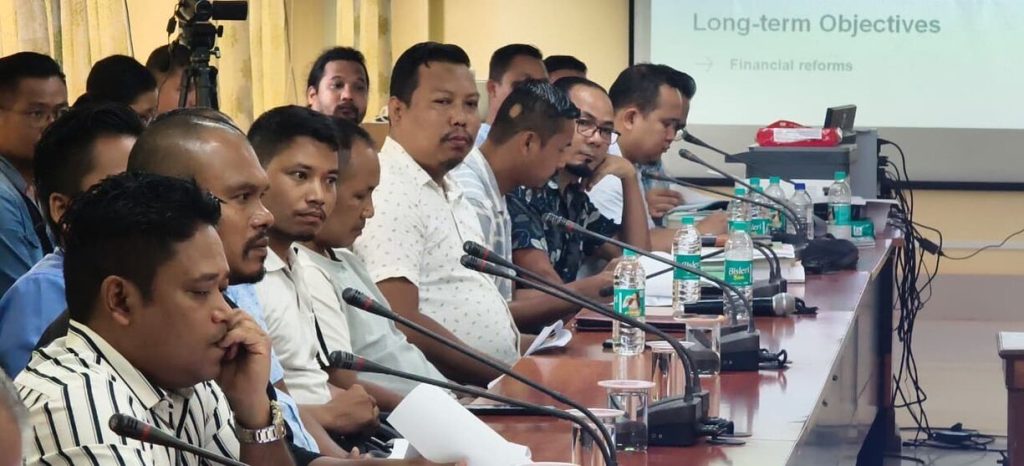
One proposal discussed was the creation of an escrow account to ensure transparency in handling bailout funds.
Meanwhile, a sudden announcement by GHADC to pay 10 months of pending salary to its staff from its own resources have caught both MDCs and NGOs off guard.
Agarwal said the Subcommittee’s will file an initial report within its 45-day timeline while comprehensive reforms will require multiple rounds of consultations.
“We may submit multiple reports — beginning with urgent recommendations on salary payments, followed later by detailed suggestions on structural reforms,” he explained.

